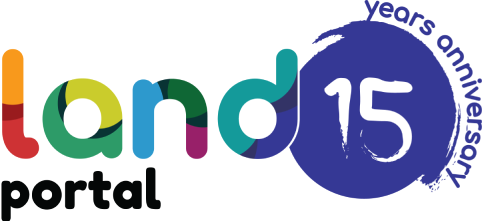Restoring / enhancing soil health is key for sustainable intensification and regenerative agriculture in the Global South, while reducing vulnerability of
smallholder farmers to climate change.
A flexible framework is proposed that can be used to target, monitor and adapt soil health interventions with relevant stakeholders
Development of biological soil health indicators and assessment methods require more research – given the key role of soil biology for soil health/functions
Search results
Showing items 1 through 9 of 12443.-
Library ResourceJanuary, 2023Italy
-
Library ResourceJanuary, 2023Italy
ncreasing climate and conflict-related displacement in fragile or conflict-affected states threatens human security and sustainable development around the world. As forced displacement increases and becomes more protracted in length, destination areas—where displaced and host communities often have low adaptive capacity and live side by side, sharing resources related to land, food, and water systems—are particularly exposed to human security risks.
-
Library ResourceJanuary, 2023Italy
For the 1.5 billion people living in fragile and conflict-affected situations, livelihood challenges are compounded by climate change, unsustainable resource consumption, poor governance, and weak social cohesion. Disaster risk reduction (DRR) and preparedness are critical components of a comprehensive approach to managing and mitigating the impact of disasters.
-
Library ResourceJanuary, 2023France
The mid-hills of Nepal account for 68% of the country’s total area[1] and 56% of its arable land. Ranging in altitude from 610m to 4,876m, there are many small pockets of micro-irrigation that have the potential for high-value crop cultivation. However, almost a third of irrigable land here remains rainfed[2] and studies indicate an increase in fallow land due to a lack of year-round irrigation infrastructure and decrease in agricultural workforce.
-
Library ResourceJanuary, 2023France
The theory of change depends on all work being done within partnerships, particularly with
national research and extension systems(NARES) and with small and medium enterprises (SMEs)
active in the national breeding and seed sectors. A core focus is to raise the NARES-CGIAR-SME
breeding networks’ collective strategic and operational capacity to deliver a high rate of uptake
and replacement in seed varieties among small-scale farmers in low- and medium- income
countries. -
Library ResourceJanuary, 2023France
-
Library ResourceJanuary, 2023Italy
This Methodological Note seeks to support reflection on and provide examples of qualitative research methodologies to understand and assess women’s leadership, including leadership that supports collective action in the Commons.
-
Library ResourceJanuary, 2023Germany
For the 1.5 billion people living in Fragile and Conflict Affected Settings (FCAs), livelihood challenges and rising food, fertiliser, and input prices are compounded by climate change, unsustainable resource consumption, poor governance, and weak social cohesion . Economic disruptions, such as those caused by COVID-19 and the war in Ukraine, are sparking the risk of food and nutrition crises and poverty and conflict traps.
-
Library ResourceJanuary, 2023Netherlands
Climate shocks to agriculture are threatening food security, especially in developing countries. Poverty and malnutrition are rising rapidly. Therefore, we must urgently transform our agricultural systems to be productive, sustainable, and equitable, and to contribute fully to lowering greenhouse gas (GHG) emissions. This will require a global “Agricultural Breakthroughâ€, defined in the Breakthrough Agenda as: “Climate-resilient, sustainable agriculture is the most attractive and widely adopted option for farmers everywhere by 2030.†How can we achieve this?
-
Library ResourceJanuary, 2021United Kingdom
We report on how the COVID-19 pandemic is affecting Indigenous peoples and local communities (IPLCs), especially those who govern, manage and conserve their lands and waters. We explore the themes of access and use of natural resources, solidarity, decision-making, the role of governments and IPLCs in managing COVID-19, and the uptake of traditional medicine. These themes are explored through a global online survey in English, Spanish and French.
Land Library Search
Through our robust search engine, you can search for any item of the over 64,800 highly curated resources in the Land Library.
If you would like to find an overview of what is possible, feel free to peruse the Search Guide.

